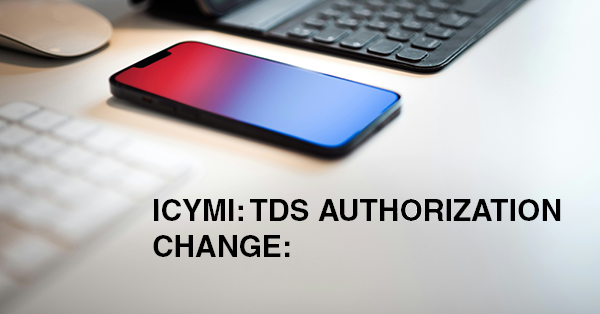IRS LAUNCHES NEW EFFORT AIMED AT HIGH-INCOME NON-FILERS:

The Internal Revenue Service announced a new effort focused on high-income taxpayers who have failed to file federal income tax returns in more than 125,000 instances since 2017.
The new initiative, made possible by Inflation Reduction Act funding, begins with IRS compliance letters going out this week on more than 125,000 cases where tax returns have not been filed since 2017. The mailings include more than 25,000 to those with more than $1 million in income, and over 100,000 to people with incomes between $400,000 and $1 million between tax years 2017 and 2021.
These are all cases where the IRS has received third-party information – such as through Forms W-2 and 1099s – indicating these people received income in these ranges but failed to file a tax return. Without adequate resources, the IRS non-filer program has only run sporadically since 2016 due to severe budget and staff limitations that didn’t allow these cases to be worked. With new Inflation Reduction Act funding available, the IRS now has the capacity to do this core tax administration work.
This week, the IRS will begin mailing these compliance alerts for failure to file a tax return, formally known as the CP-59 Notice. About 20,000 to 40,000 letters will go out each week, beginning with the filers in the highest-income categories. The IRS noted that some of these non-filers have multiple years included in the case count so the number of taxpayers receiving letters will be smaller than the actual number of notices going out.
People receiving these letters should take immediate action to avoid additional follow-up notices, higher penalties as well as increasingly stronger enforcement measures. People in this category should also consult with a trusted tax professional so they can quickly file their late tax returns and pay delinquent tax, interest and penalties. The failure-to-file penalty amounts to 5% of the amount owed every month – up to 25% of the tax bill. There is also special non-filer information on IRS.gov that can assist them.
Since the IRS is not aware of the potential credits and deductions these people may have, the amount of potential revenue to be gained from this effort is uncertain. The third-party information on these taxpayers indicates financial activity of more than $100 billion. Even with a conservative estimate, the IRS believes hundreds of millions of dollars of unpaid taxes are involved in these cases. At the same time, some non-filers may actually be owed a refund.
The new non-filer initiative is part of a larger effort underway with the IRS working to ensure large corporate, large partnership and high-income individual filers pay the taxes they owe. Prior to the Inflation Reduction Act, more than a decade of budget cuts prevented the IRS from keeping pace with the increasingly complicated set of tools that the wealthiest taxpayers use to shelter or manipulate their income to avoid taxes. The IRS is now taking swift and aggressive action to close this gap.
High-income non-filers: IRS actions escalate if tax returns are not filed
People who do not respond to the non-filer letter will receive additional notices and other enforcement actions. Ultimately, this can lead to a variety of IRS compliance activities, including collection and audit action as well as potential criminal prosecution. As part of this, the IRS can also take steps to file what’s known as a Substitute for Return (SFR).
If a person repeatedly fails to respond and does not file, the IRS may create a substitute tax return for the taxpayer. The IRS calculates this substitute tax return based on wages and other income reported to the agency by employers, financial institutions and others. The return factors in the tax, penalty and interest owed by the taxpayer.
If the IRS files a substitute return, it is still in the person’s best interest to file their own tax return to take advantage of any exemptions, credits and deductions they are entitled to receive. The IRS will generally adjust the account to reflect the correct figures.




